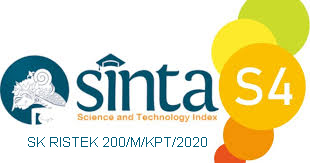The Impact of Technology on Students’ Psychological and Educational Performance
Abstract
The quality, availability, consistency, and accessibility of technology play vital roles in shaping learning performance and effectiveness. However, it is important to recognize that technology alone does not guarantee desired learning outcomes. Instead, the interaction between humans and technology, along with the design dimensions of educational tools, significantly influence students' learning outcomes and their psychological engagement with the learning process. Moreover, improper utilization of technology can pose obstacles to effective learning. This paper aims to provide a thorough examination of the effects of technology on the learning process, aiming to identify instances where technology serves as a facilitator or hindrance to learners. Furthermore, a diverse range of suggestions will be presented to optimize and enhance the role of technology in promoting effective learning experiences. The research highlighted the advantages and disadvantages of different technology aspects on students, and highlighted how keeping the learning outcome as a principle in course design will lead to the proper evaluation of learning outcome. By delving into these crucial aspects, this research endeavors to provide valuable insights and actionable recommendations for educators, policymakers, and stakeholders seeking to harness the full potential of technology in education.
Keywords
Full Text:
PDFReferences
Mistler‐Jackson, M., & Butler Songer, N. (2000). Student motivation and Internet technology: Are students empowered to learn science?. Journal of Research in Science Teaching: The Official Journal of the National Association for Research in Science Teaching, 37(5), 459-479. [was1]
Ibrahim, N. (2004). Impact of Internet Media Use to Facilitate Learning for Secondary School Student. thannual, 76. [was new1]
Seal, K.C., Przasnyski, Z.H. (2003) Using technology to support pedagogy in an OR/MS course. Interfaces, 33, 4, 27-40. [was 5 extra1]
Hay, A., Hodgkinson, M., Peltier, J.W., Drago, W.A. (2004) Interaction and virtual learning. Strategic Change, 13, 4,193-204. [was 5 extra2]
Marks, R.B., Sibley, S.D., Arbaugh, J.B. (2005) A structural equation model of predictors for effective online learning.Journal of Management Education, 29, 4, 531-563.
Wan, Z., & Fang, Y. (2006). The role of information technology in technology-mediated learning: A review of the past for the future.
Taylor, J. (2002). A review of the use of asynchronous e-seminars in undergraduate education. In R. Hazemi, S. Hailes and S. Wilbur (Eds.), The digital university (pp.125–138). London: Springer-Verlag.
Taylor, J., McAlaney, J., Muir, S., & Cole, T. (2017). Teaching Sensitive Issues in Cyberpsychology. Psychology Teaching Review, 23(1), 56-62.
Kanuga, M. & Rosenfeld, W.D. (2004). Adolescent sexuality and the internet: The good, the bad, and the URL. Journal of Pediatric & Adolescent Gynecol., 17(2),117–24.
Bandura, A. (1986). Social foundations of thought and action. Englewood Cliffs, NJ: Prentice-Hall.
Shunk, D.H., & Hanson, A.R. (1989). Self-modeling and children’s cognitive skill learning. Journal of Educational Psychology, 81, 155–163.
Brosnan, M. J. (2002). Technophobia: The psychological impact of information technology. Routledge.
Pajares, F. (2001). Toward a positive psychology of academic motivation. The Journal of Educational Research, 95(1), 27-35.
“What makes a good learning environment for online courses?” https://flearningstudio.com/what-makes-a-good-learning-environment-online/ F.Learning Studio, Last access Oct 2022.
Fahmy, M. F. (2004). Thinking about technology effects on higher education. Journal of Technology Studies, 30(1), 53-58.
Turkle, S. (1997). Life on the Screen: Identity in the Age of the Internet. New York: Simon & Schuster.
Kovatcheva, E. CYBERPSYCHOLOGY IN EDUCATION (2003), Thesis university of twenty.
M. E. Hoque, “Three domains of learning: Cognitive, affective and psychomotor,” The Journal of EFL Education and Research, vol. 2, no. 2, pp. 45–52, 2016.
Z. Wan and Y. Fang, “The role of information technology in technology-mediated learning: A review of the past for the future,” 2006.
R. A. Pambudi, N. Ramadijanti, and A. Basuki, “Psychomotor game learning using skeletal tracking method with leap motion technology,” in 2016 International Electronics Symposium (IES), 2016, pp. 142–147.
S. Rourke, “How does virtual reality simulation compare to simulated practice in the acquisition of clinical psychomotor skills for pre-registration student nurses? A systematic review,” Int J Nurs Stud, vol. 102, p. 103466, 2020.
K.-C. Yao, T.-C. Wu, L.-C. Hsu, and W.-T. Huang, “Evaluating thematic-approach teaching of robot design and practice course through psychomotor and affective domains,” ICIC Express Letters, vol. 13, no. 1, pp. 41–50, 2019.
R. Emmanuel, M. E. Uduafemhe, and H. Shuaibu, “Effects Of Computer Simulation On Nigeria Certificate In Education Students’psychomotor Achievement And Interest In Electronics Technology”.
D. Furió, S. González-Gancedo, M.-C. Juan, I. Seguí, and N. Rando, “Evaluation of learning outcomes using an educational iPhone game vs. traditional game,” Comput Educ, vol. 64, pp. 1–23, 2013.
M. Tan et al., “Using Technology for the Efficient and Precise Assessment of Cognitive Skills in Countries with Limited Standardized Assessment Instruments: A Report on the Case of Saudi Arabia,” Applied Sciences, vol. 12, no. 3, p. 1617, 2022.
H.-Y. Chang, H.-F. Wu, Y.-C. Chang, Y.-S. Tseng, and Y.-C. Wang, “The effects of a virtual simulation-based, mobile technology application on nursing students’ learning achievement and cognitive load: Randomized controlled trial,” Int J Nurs Stud, vol. 120, p. 103948, 2021.
D. A. Ziegler, J. A. Anguera, C. L. Gallen, W.-Y. Hsu, P. E. Wais, and A. Gazzaley, “Leveraging technology to personalize cognitive enhancement methods in aging,” Nat Aging, vol. 2, no. 6, pp. 475–483, 2022.
A. R. Masalimova et al., “Cognitive simulation as integrated innovative technology in teaching of social and humanitarian disciplines,” EURASIA Journal of Mathematics, Science and Technology Education, vol. 13, no. 8, pp. 4915–4928, 2017.
A. L. S. Hoong, L. S. Thi, and M.-H. Lin, “Affective technology acceptance model: extending technology acceptance model with positive and negative affect,” Knowledge Management Strategies and Applications, vol. 147, 2017
DOI: https://doi.org/10.31326/jisa.v6i1.1661
Refbacks
- There are currently no refbacks.
Copyright (c) 2023 Taha Basheer Taha, Mohammad Salim

This work is licensed under a Creative Commons Attribution-ShareAlike 4.0 International License.
JOURNAL IDENTITY
Journal Name: JISA (Jurnal Informatika dan Sains)
e-ISSN: 2614-8404, p-ISSN: 2776-3234
Publisher: Program Studi Teknik Informatika Universitas Trilogi
Publication Schedule: June and December
Language: English
APC: The Journal Charges Fees for Publishing
Indexing: EBSCO , DOAJ, Google Scholar, Arsip Relawan Jurnal Indonesia, Directory of Research Journals Indexing, Index Copernicus International, PKP Index, Science and Technology Index (SINTA, S4) , Garuda Index
OAI address: http://trilogi.ac.id/journal/ks/index.php/JISA/oai
Contact: jisa@trilogi.ac.id
Sponsored by: DOI – Digital Object Identifier Crossref, Universitas Trilogi
In Collaboration With: Indonesian Artificial Intelligent Ecosystem(IAIE), Relawan Jurnal Indonesia, Jurnal Teknologi dan Sistem Komputer (JTSiskom)
JISA (Jurnal Informatika dan Sains) is Published by Program Studi Teknik Informatika, Universitas Trilogi under Creative Commons Attribution-ShareAlike 4.0 International License.


















